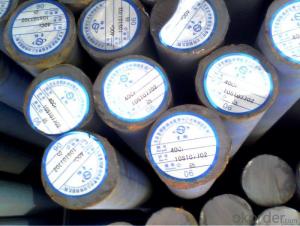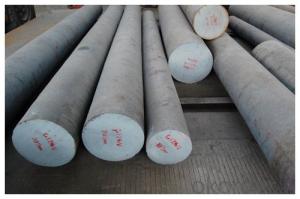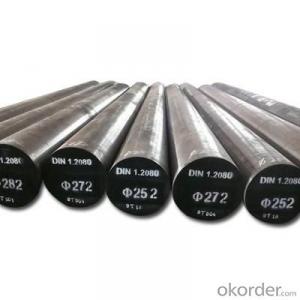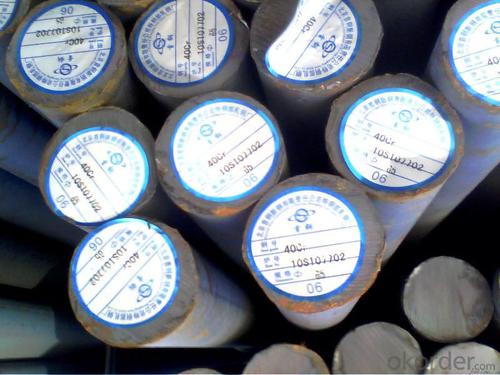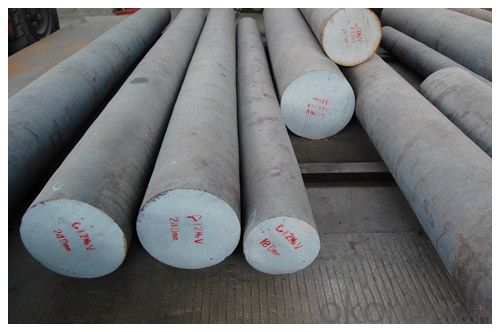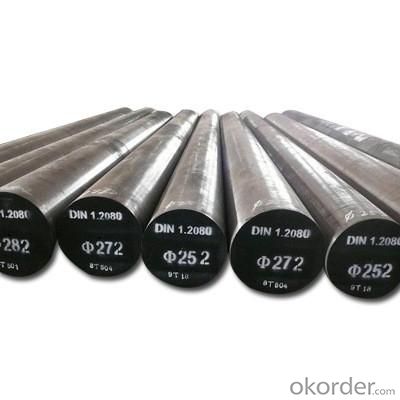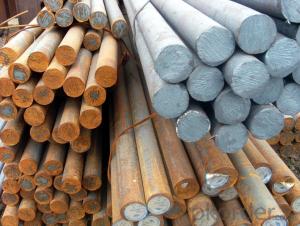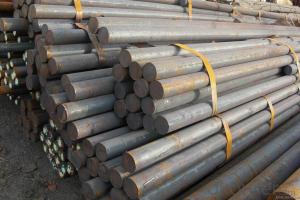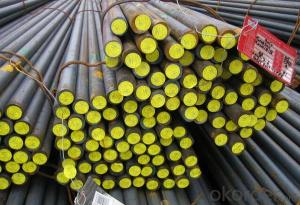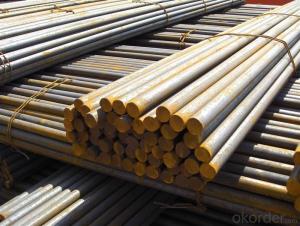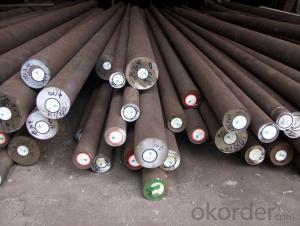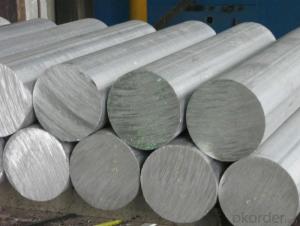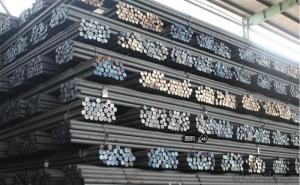Special Steel Alloy Steel Round Bar SCM415
- Loading Port:
- China main port
- Payment Terms:
- TT OR LC
- Min Order Qty:
- 30 m.t.
- Supply Capability:
- 10000 m.t./month
OKorder Service Pledge
OKorder Financial Service
You Might Also Like
Specification
Product Information
1 Standards and Chemical Composition:
GB | AISI | JIS | DIN |
15CrMo | SCM415 | 16CrMo44 |
C | Si | Mn | P | S | Cr | Mo |
0.13-0.18 | 0.15-0.35 | 0.60-0.85 | ≤0.03 | ≤0.03 | 0.9-1.2 | 0.15-0.30 |
2 Mechanical Property:
Yield Strength (MPa) | ≥295 |
Tensile Strength (MPa) | ≥440 |
Elongation (%) | ≥22 |
Hardness (HB) | ≤197 |
Reduction in Area (%) | ≥60 |
AKV (J) | ≥94 |
3 Brief Introduction:
Dimension | 14-350mm |
Length | 2-13m or as per your request |
Delivery condition | Hot rolled |
Heat Treatment | Normalizing, Annealing, Quenching |
Packing | Standard seaworthy packing or according to your requirements |
Product Show
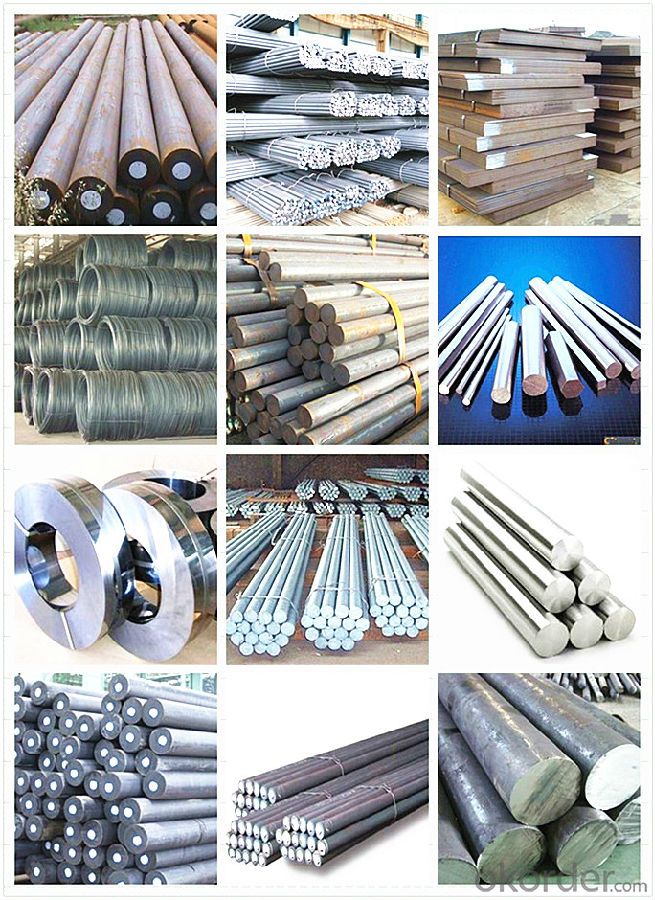
Workshop Show
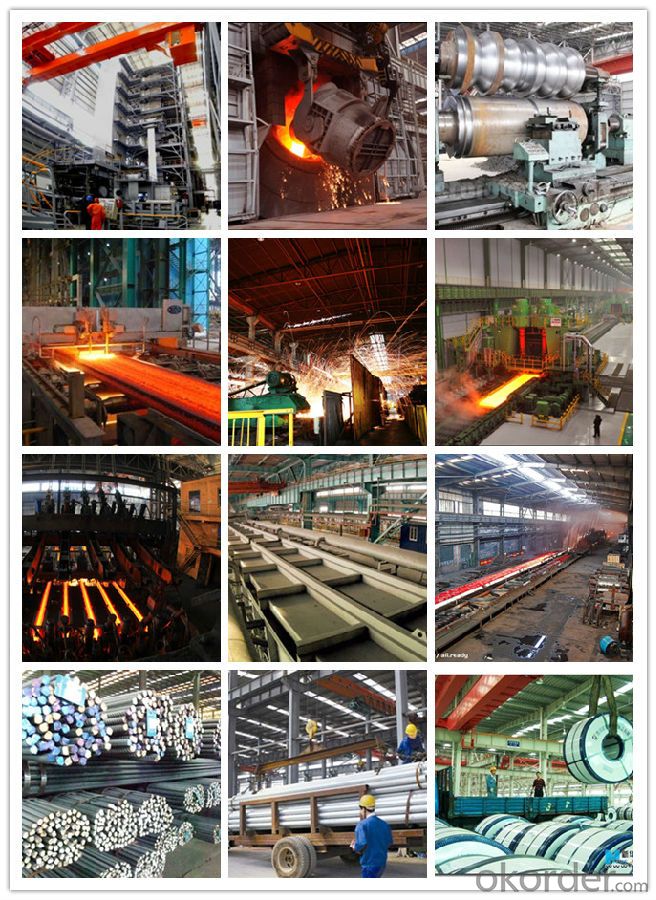
Shipping
1. FedEx/DHL/UPS/TNT for samples, Door-to-Door;
2. By Air or by Sea for batch goods, for FCL; Airport/ Port receiving;
3. Customers specifying freight forwarders or negotiable shipping methods!
Delivery Time: 3-7 days for samples; 5-25 days for batch goods.
Payment Terms
1.Payment: T/T, L/C, Western Union, MoneyGram,PayPal; 30% deposits; 70% balance before delivery.
2.MOQ: 1pcs
3.Warranty : 3 years
4.Package Informations: 1) EXPORT, In 20 feet (GW 25 ton) or 40 feet Container (GW 25 ton)
2)as customer's requirement
Why choose us?
(1) The leading exporter in China special steel industry.
(2) Large stocks for various sizes, fast delivery date.
(3) Good business relationship with China famous factories.
(4) More than 7 years steel exporting experience.
(5) Good after-sales service guarantee.
- Q: What are the main elements in special steel alloys?
- The main elements in special steel alloys vary depending on the specific alloy, but commonly include elements such as chromium, nickel, molybdenum, and vanadium. These elements are added to enhance the properties of steel, such as corrosion resistance, strength, hardness, or heat resistance, making them suitable for specific applications in industries such as aerospace, automotive, and construction.
- Q: How does special steel contribute to the energy industry?
- Special steel plays a crucial role in the energy industry by providing high-strength, corrosion-resistant materials that are essential for various applications. It is used in the construction of power plants, oil and gas pipelines, and offshore drilling platforms, ensuring the structural integrity and reliability of these critical infrastructure. Special steel also enables the production of more efficient wind turbines and solar panels, enhancing their performance and durability. Additionally, it is utilized in the manufacturing of equipment used in nuclear power plants, where its unique properties ensure safety and long-term operation. Overall, special steel is a vital component in the energy industry, supporting its growth, sustainability, and technological advancements.
- Q: What are the main environmental impacts of special steel production?
- The main environmental impacts of special steel production include high energy consumption, significant greenhouse gas emissions, and the generation of large amounts of air and water pollution. The production process requires immense amounts of energy, primarily from fossil fuels, leading to the release of carbon dioxide and other greenhouse gases, contributing to climate change. Additionally, the production of special steel involves the use of various chemicals and the generation of hazardous waste, which can contaminate air and water sources, harming ecosystems and human health. Efforts are being made to mitigate these impacts through improved technologies and practices, such as energy efficiency measures and waste management systems, to minimize the environmental footprint of special steel production.
- Q: Can special steel be used for luxury goods?
- Yes, special steel can be used for luxury goods. Special steel often possesses superior qualities such as durability, strength, and resistance to corrosion, making it an ideal material for high-end products like luxury watches, jewelry, and accessories. Additionally, the uniqueness and exclusivity associated with special steel can enhance the appeal and desirability of luxury goods.
- Q: How is case-hardening steel used in the manufacturing of gears?
- Case-hardening steel is used in the manufacturing of gears to increase their hardness and durability. This process involves adding a thin layer of hard and wear-resistant material on the surface of the gear, while maintaining a tougher and more flexible core. The case-hardened gears can withstand higher loads, resist wear and fatigue, and have a longer lifespan, making them ideal for demanding industrial applications.
- Q: What are the different mining grades of special steel?
- The different mining grades of special steel can vary depending on the specific composition and properties required for different applications. Some common mining grades include stainless steel, tool steel, high-speed steel, and alloy steel. Each grade has unique characteristics that make it suitable for specific mining operations, such as resistance to corrosion, high strength, hardness, and wear resistance.
- Q: Can special steel be used for precision instruments?
- Yes, special steel can be used for precision instruments. Special steels, such as high-speed steel or tool steel, possess excellent properties like high hardness, wear resistance, and dimensional stability. These qualities make them suitable for manufacturing precision instruments that require accuracy and durability, such as surgical tools, measuring equipment, or watch components.
- Q: How does the hardness of special steel affect its performance?
- The hardness of special steel plays a crucial role in determining its performance. The hardness of steel refers to its ability to resist indentation, scratching, or deformation during use. This property is directly related to the steel's microstructure and the amount of carbon present in it. When special steel is hardened, it undergoes a process called heat treatment, typically involving rapid cooling or quenching after being heated to high temperatures. This process alters the steel's microstructure, resulting in a harder material. The increased hardness provides several benefits to the performance of special steel. Firstly, a higher hardness level enhances the wear resistance of special steel. This is particularly important in applications where the steel is subjected to abrasive or erosive forces, such as cutting tools or machinery components. A harder steel can withstand these forces without significant wear or damage, resulting in improved longevity and reliability. Secondly, the hardness of special steel affects its strength and toughness. A harder steel generally exhibits higher strength, meaning it can withstand greater forces without permanent deformation or failure. This property is advantageous in applications where the steel is subjected to heavy loads or impacts. Additionally, a certain level of toughness is necessary to prevent brittle fractures. While high hardness can make a steel more brittle, careful heat treatment can balance the hardness and toughness, ensuring the steel remains strong and resistant to fracture. Furthermore, the hardness of special steel also affects its machinability. Hardened steel can be more challenging to machine due to its increased resistance to cutting tools. However, it offers greater dimensional stability and precision during machining operations, leading to more accurate and consistent results. In summary, the hardness of special steel significantly impacts its performance. A higher hardness level provides improved wear resistance, strength, and toughness, making it suitable for demanding applications. However, the balance between hardness and toughness needs to be carefully considered to avoid brittleness. Therefore, understanding and controlling the hardness of special steel is essential to optimize its performance in various industries.
- Q: How does special steel contribute to the manufacturing of precision instruments?
- Special steel plays a crucial role in the manufacturing of precision instruments by providing exceptional strength, durability, and resistance to corrosion. Its unique properties allow for the production of intricate parts and components that require high precision and accuracy. Additionally, special steel offers excellent heat resistance and stability, ensuring consistent performance and reliability of precision instruments in various demanding environments and applications.
- Q: What are the key characteristics to consider when selecting special steel?
- When selecting special steel, key characteristics to consider include the steel's composition, mechanical properties, corrosion resistance, heat resistance, and cost efficiency.
Send your message to us
Special Steel Alloy Steel Round Bar SCM415
- Loading Port:
- China main port
- Payment Terms:
- TT OR LC
- Min Order Qty:
- 30 m.t.
- Supply Capability:
- 10000 m.t./month
OKorder Service Pledge
OKorder Financial Service
Similar products
Hot products
Hot Searches
Related keywords
